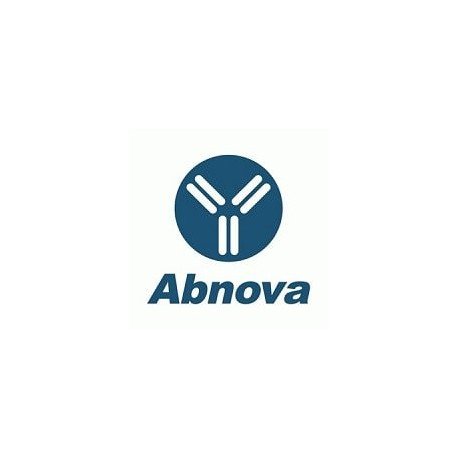Cart 0 Product Products (empty)
No products
To be determined Shipping
0,00 € Total
Prices are tax excluded
Product successfully added to your shopping cart
Quantity
Total
There are 0 items in your cart. There is 1 item in your cart.
Total products (tax excl.)
Total shipping (tax excl.) To be determined
Total (tax excl.)
Data sheet of Rat Tumors, epithelial origin monoclonal antibody, clone CC52
| Brand | Abnova |
| Product type | Primary antibodies |
| Reactivity | Rat |
| Host species | Mouse |
| Applications | WB |
More info about Rat Tumors, epithelial origin monoclonal antibody, clone CC52
| Brand: | Abnova |
| Reference: | MAB5199 |
| Product name: | Rat Tumors, epithelial origin monoclonal antibody, clone CC52 |
| Product description: | Mouse monoclonal antibody raised against Rat Tumors, epithelial origin. |
| Clone: | CC52 |
| Isotype: | IgG1 |
| Immunogen: | Native purified from rat colon adenocarcinoma cells (CC531). |
| Form: | Liquid |
| Recommend dilutions: | The optimal working dilution should be determined by the end user. |
| Storage buffer: | In buffer containing 0.05% sodium azide |
| Storage instruction: | Store at 4°C. For long term storage store at -20°C. Aliquot to avoid repeated freezing and thawing. |
| Note: | This product contains sodium azide: a POISONOUS AND HAZARDOUS SUBSTANCE which should be handled by trained staff only. |
| Product type: | Primary antibodies |
| Host species: | Mouse |
| Antigen species / target species: | Rat |
| Specificity: | CC52 is a rat strain-independent marker for tumor cells of epithelial origin, such as colon, breast, or lung cancer, etc. When injected in colon tumor-bearing rats, CC52 localized to tumor cells (Hagenaars et al., 2001). CC52 can be used for immunohistochemical staining of tumor cells in frozen tissue sections as well as formalin-fixed/paraffin-embedded tissue. CC52 is also suitable for flow cytometry, Western blotting, immunoprecipitation, and ELISA. Hybridomas were selected for producing antibodies reacting with the CC531 cell line and with minimal cross reactivity to normal tissues (Hagenaars et al., 2001). CC52 belongs to a first generation of such antibodies and is suitable to detect tumor cells by immunohistochemistry. The monoclonal antibody binds to a dimer of two proteins, 120 kD, 130 kD, expressed by rat tumor cells of epithelial origin. CC52 has been used in many studies in a rat model of colorectal cancer (Hagenaars et al., 2000). In immunohistochemical stainings, there is |
| Reactivity: | Rat |
| Applications: | WB |
| Shipping condition: | Dry Ice |


